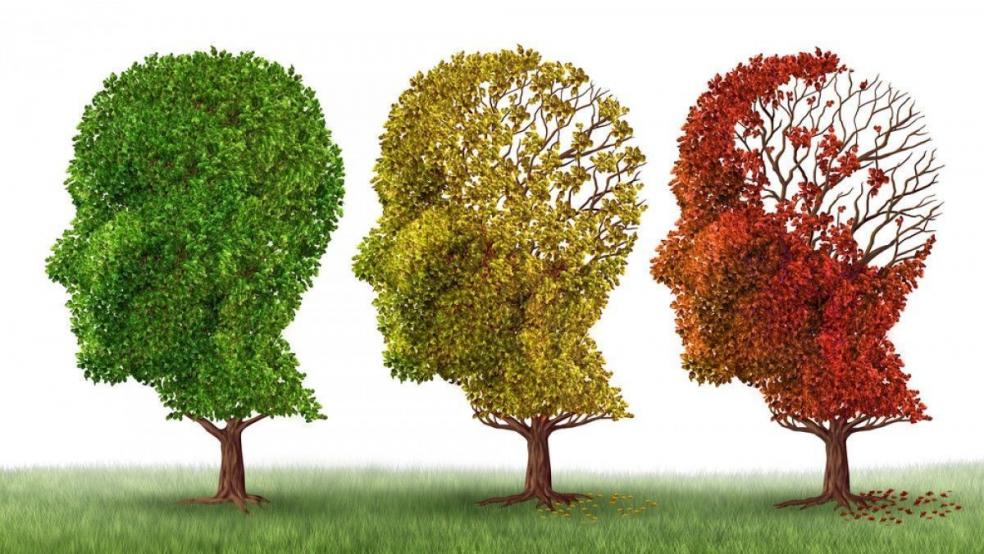In 1994, when the movie Philadelphia hit cinemas, it was the first big-budget Hollywood film about AIDS. Now, over two decades later, the film is often cited as a trailblazer in the fight against that horrible – but now largely manageable – disease. But this take on Philadelphia’s role in the history of AIDS isn’t quite accurate.
Before Philadelphia wooed moviegoers and won two Oscars, the human costs of AIDS were explored on both screen and stage. As one example, there was As Is by William Hoffmann in 1985, which ran for nearly 300 performances on Broadway and was nominated for a Tony Award. In Roger Ebert’s 1994 review of Philadelphia, Ebert claimed as much, noting that Philadelphia “breaks no new dramatic ground,” and suggesting that while Hollywood may have upped the ante, other brave and pioneering artists came first.
This is something like what we are seeing now with caregiving and Alzheimer’s disease. Sure, Still Alice brought the horrors of Alzheimer’s to popcorn-loving audiences, but the movie glided over the brutal day-in, day-out demands of family caregiving. It failed to show how overwhelming and all-consuming it is to be a caregiver. This is not to criticize Still Alice, but to emphasize that elder caregiving remains in the dark.
Related: The American Retirement Crisis in 5 Charts
Enter Mourning the Living, a full-length play by Mickele Hogan that premiered this August in New York. The story revolves around Kay, a woman whose husband has early onset Alzheimer’s, as she struggles to provide him with the care he needs while also maintaining a life for herself. As the story unfolds, the audience can sense that it won’t end well. We anticipate that the struggles of Alzheimer’s caregiving will overcome the family, as well as friends and even the neighborly help.
We sense, almost inevitably, that Kay will find it impossible to balance doing what’s right for both her husband and herself. Indeed, Mourning the Living captures perfectly the tensions in one of the toughest choices in a caregiver’s life: how to choose between one’s own basic human needs and the higher, moral pull of caring for a loved one.
The story ends on an eerie, prophetic note: Kay and her husband stand alone, in a dark and cold room, with Kay noting, with loss and devastation across her face, “It’s winter.”
Will Mourning the Living be the next Philadelphia? While it may not be cited as a turning point in either the fight against Alzheimer’s or the work for elder caregiving support and better caregiving methods, it should be.
Related: The Retirement Cost That 80% of Americans Aren’t Ready For
Bravely and fiercely, Mourning the Living gives voice to previously unspoken horrors that are sweeping America and much of the world. The caregiving burden is the underside, the black cloud, the unspoken nightmare of longevity. Our miraculously long lives brought about through the innovations of sanitation and modern medicine are often taken for granted. Having pretty much conquered the diseases of earlier centuries – an infection was once a death sentence – we are now too often afflicted with diseases like Alzheimer’s that render elder caregiving one of the growth industries of our time. We cannot afford – socially or economically – to ignore caregiving any longer, and let’s hope that this profoundly compassionate, articulate and beautifully acted production shines the light on the elder caregiving that 21st century life is demanding.
Our longevity transforms Alzheimer’s from a rare disease to the public health crisis of our time. This is what makes Ms. Hogan’s play so poignant and important. Alzheimer’s now costs over 1 percent of global GDP, far exceeding the $604 billion measured just five years ago.
But perhaps what makes Mourning the Living even more remarkable is the playwright, a 23-year-old from Omaha, Nebraska, who grew up in a family that founded Home Instead Senior Care, the world’s largest provider of non-medical in-home caregiving. For her summer job, Mickele worked as a caregiver for seniors, experiencing first-hand the tensions, troubles and demands of the position. Mourning the Living surely draws from these experiences and insights. And it is clear from the brilliance and remarkably smooth dynamic of the dialogue she created that it comes not just from an intelligent and well-organized mind, but from a heart and soul that feels it, too.
As we write the history of the 21st century, one of the defining themes will be the miracle of longevity. By mid-century, there will be two billion of us over 60, and lifespans will routinely stretch into the 90s, 100s and beyond. Ms. Hogan teaches that this achievement has its dark side. Quite rightly, she exposes the underbelly of longevity and points to a new need across society to understand, expand and also honor elder caregiving.
You might have missed Mourning the Living at the off-Broadway Hudson Guild Theater in New York City. But my prediction is you will have another chance as the worlds of theater, social commentary and 21st-century life collide. Hooray for Mickele Hogan, who made us think and feel by crafting a truly wonderful story informed by excellent writing, deep compassion and the eye-opening experience of elder caregiving.






